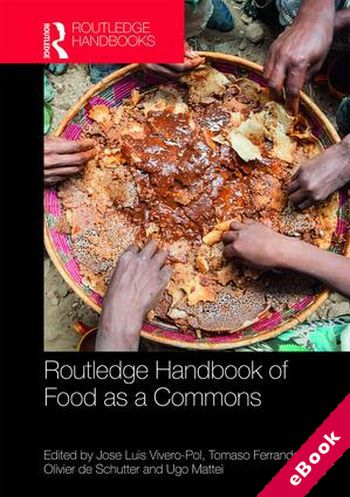
The device(s) you use to access the eBook content must be authorized with an Adobe ID before you download the product otherwise it will fail to register correctly.
For further information see https://www.wildy.com/ebook-formats
Once the order is confirmed an automated e-mail will be sent to you to allow you to download the eBook.
All eBooks are supplied firm sale and cannot be returned. If you believe there is a fault with your eBook then contact us on ebooks@wildy.com and we will help in resolving the issue. This does not affect your statutory rights.
From the scientific and industrial revolution to the present day, food – an essential element of life - has been progressively transformed into a private, transnational, mono-dimensional commodity of mass consumption for a global market. But over the last decade there has been an increased recognition that this can be challenged and reconceptualized if food is regarded and enacted as a commons.
This Handbook provides the first comprehensive review and synthesis of knowledge and new thinking on how food and food systems can be thought, interpreted and practiced around the old/new paradigms of commons and commoning. The overall aim is to investigate the multiple constraints that occur within and sustain the dominant food and nutrition regime and to explore how it can change when different elements of the current food systems are explored and re-imagined from a commons perspective. Chapters do not define the notion of commons but engage with different schools of thought:
The book sparks the debate on food as a commons between and within disciplines, with particular attention to spaces of resistance (food sovereignty, de-growth, open knowledge, transition town, occupations, bottom-up social innovations) and organizational scales (local food, national policies, South-South collaborations, international governance and multi-national agreements). Overall it shows the consequences in terms of food, planet and living beings of a shift to the alternative paradigm of food as a commons.